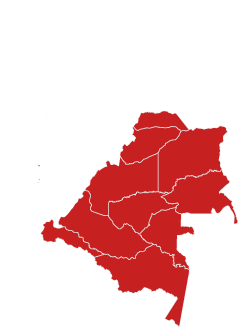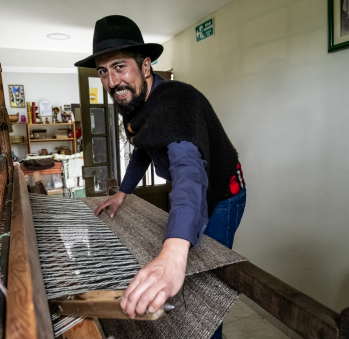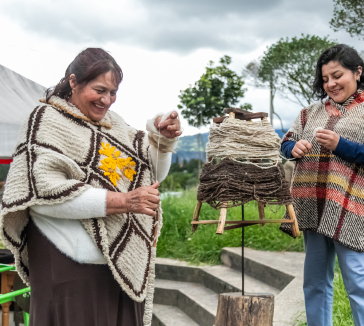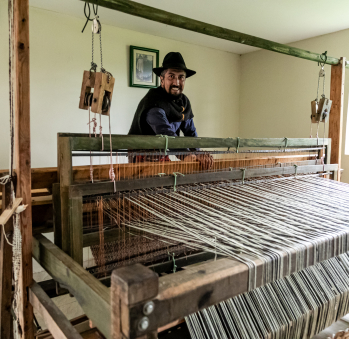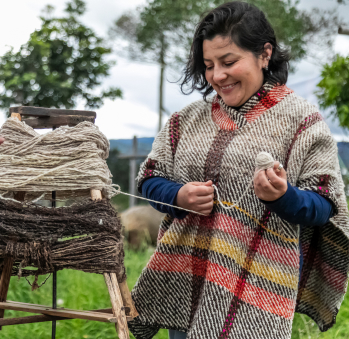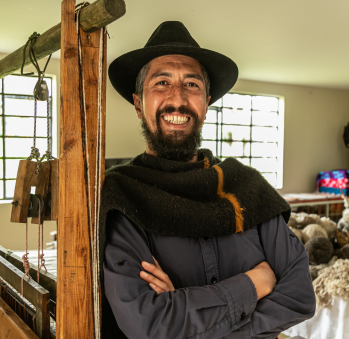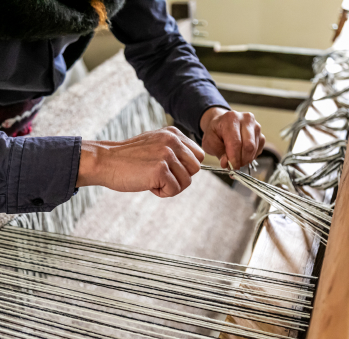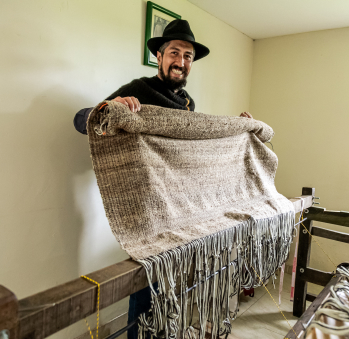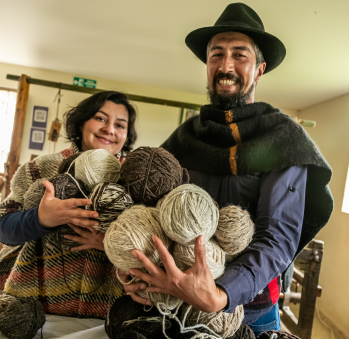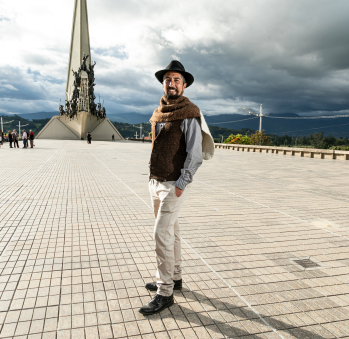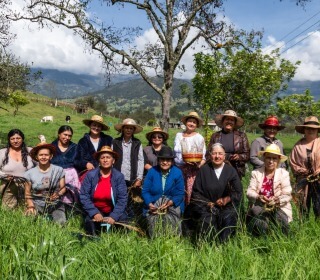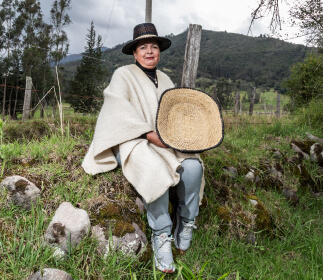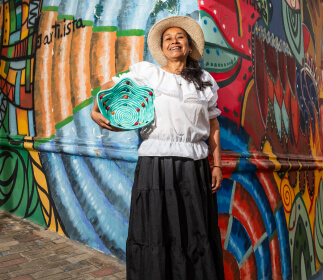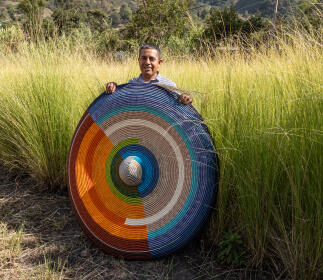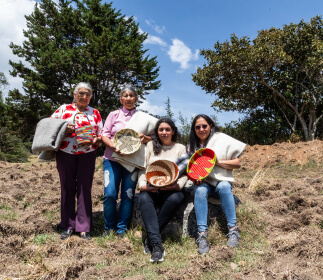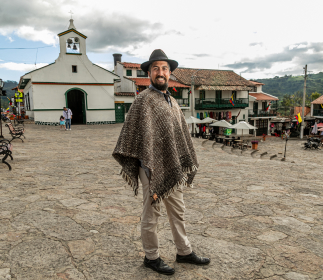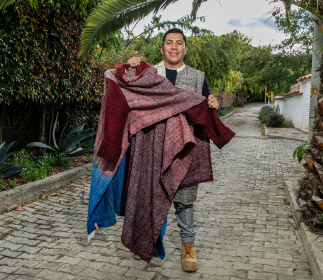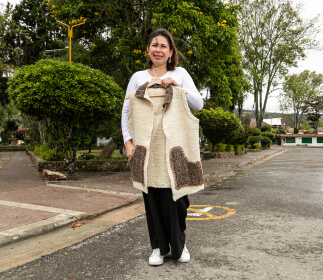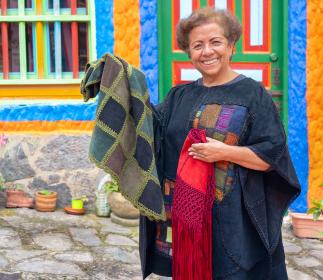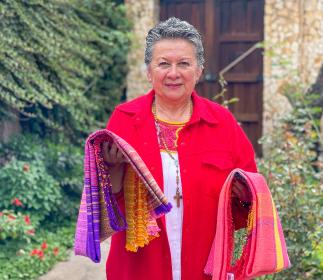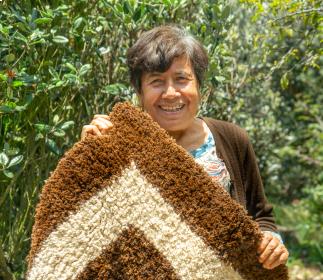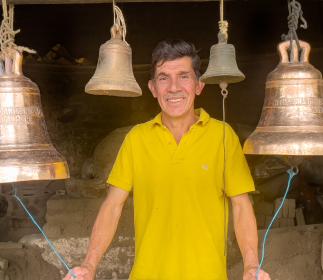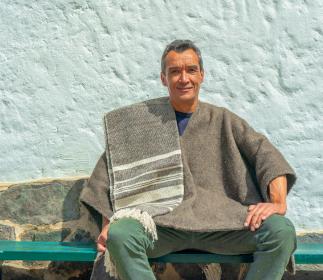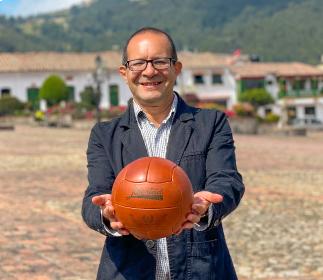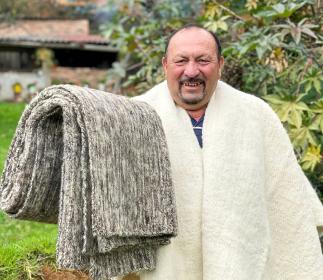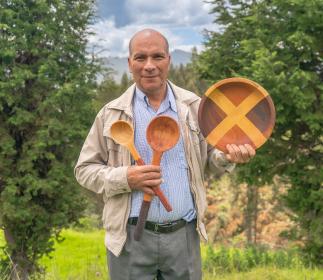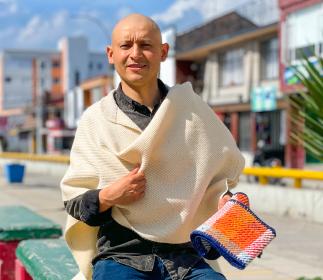Wilmer Osvaldo Pulido Rodríguez
Workshop: Ruanas y tejidos Paipa
Craft: Weaving
Trail: Paipa-Iza and Paipa - Guacamayas Route
Location: Paipa, Boyacá
Wilmer has to be stopped because, before we know it, he has overwhelmed us with information. And it’s all so interesting that we don’t even know who’s who in his family history—whether Vicente is the grandfather or the great-grandfather, which of the Aurelios is the namesake of the other and was a weaving teacher at Sena, whether the maternal or paternal grandmothers were the spinners, or if Aunt Elvira was the one who took on the responsibility of her family when she was too young to do so, being the second of nine siblings. He laughs because he knows he speaks quickly, and he has an answer for that too: he probably inherited it from Uncle Dimas, who was reputed to be quite a talker. Then he’ll tell us that Uncle Dimas was also a musician.
So, Wilmer needs to be asked questions to unravel the thread of his long and beautiful story. It’s also moving. And yes, Aunt Elvira was the one who took care of her younger siblings and had to toughen up because life demanded it. And yes, she was a great weaver, like everyone in the family, born surrounded by sheep between Paipa and Sotaquirá. They did it not because it gave them the pleasure it gives him, nearly 90 years after the Pulido family began, but out of physical necessity, as they lived in poverty. The spun and woven wool gave them that little bit extra to buy what the land didn’t provide and the meat that, very occasionally, made it to the table.
And then comes something that fills Wilmer’s narrative: the ongoing complaint about one of the most silent forms of violence—the economic dependence of rural and artisan women in his family and region. He feels compelled to extend this commentary because it obsesses him and because life brought him together with Diana Constanza Pérez, his wife, a sociologist by profession and a passionate embroiderer, with whom he shares a commitment to justice. He speaks with fervor, more due to the anxiety of knowing that what he describes is still happening than because he sees himself as a historian discussing a buried and overcome past of humiliation. He recounts that not long ago, just a couple of years back, he still had to hide the money from a spinner so her husband wouldn’t spend it drinking. He can’t deny it; the women around him, past and present, have inspired him to reach the place where he is today.
But being able to say this has been something he’s worked on for years. Talking about it now, he knows he studied law, completing seven semesters, because he wanted to defend the most vulnerable. But the work he ended up with was, contrary to his desire, evicting those with the least through legal arguments. He made money but cried every night. Until he couldn’t take it anymore. So, he returned to Paipa and tried to regain his coherence. However, doing so hasn’t been easy, because good ideas are often hard to sustain. For example, growing an organic lettuce costs him more than what he earns from selling it. Then, a rural woman asked him why he expected her to recycle water and all that environmental stuff if she didn’t have enough to eat. It was a period of immense dilemmas, during which meeting his wife gave him the push he needed to move forward, as now they were two with the will to turn romantic ideals into practical matters. And that’s how they arrived at the business model they promote today.
If the issue was the economic independence of women, that would be their quest. It’s a whole cycle: if women see that the effort involved in preparing wool is rewarded and well-paid, they do it with pleasure and joy, and if they’re happy, they spin better, and the product improves. And if the product is better, it’s worth more. A simple yet powerful equation they’ve managed to sustain by opening a market in Paipa for buyers with higher economic profiles. They seek those who are aware of the work involved and who want not only to take home an excellent piece but also to contribute to women’s autonomy. They’ve added design and innovation to this winning formula. Wilmer is weaving bicirruanas, honoring the use of ruana for cyclists, as well as making the English cape, a marvel with buttons that is incredibly elegant. He plays, explores, and experiments, always with the mission of giving those who prepare the raw materials what they deserve. This way, he has found peace and is grateful to the women in his life for clearly showing him what dignity means.
Craft
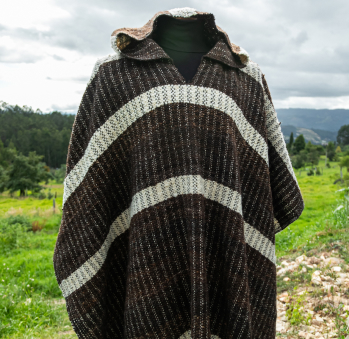
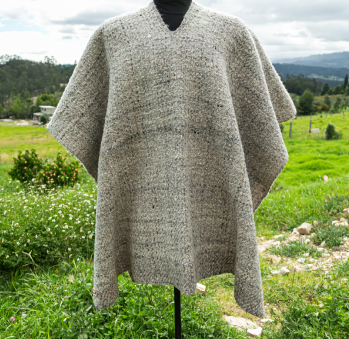
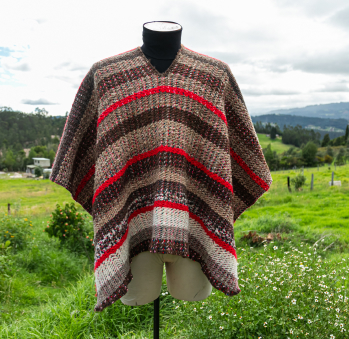
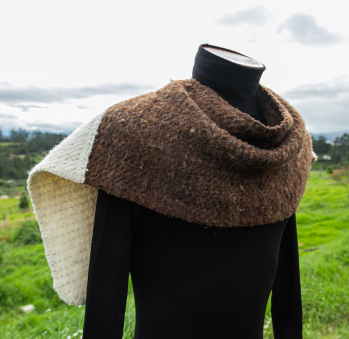
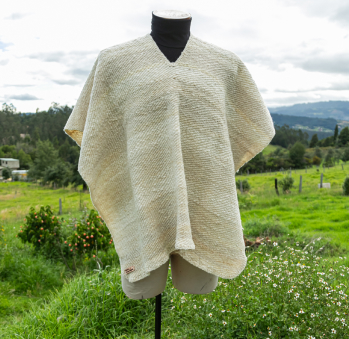
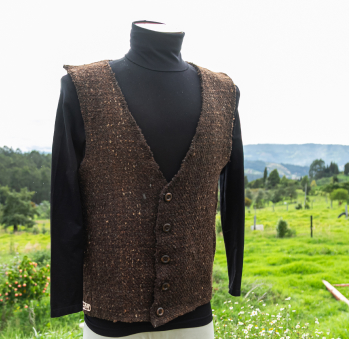
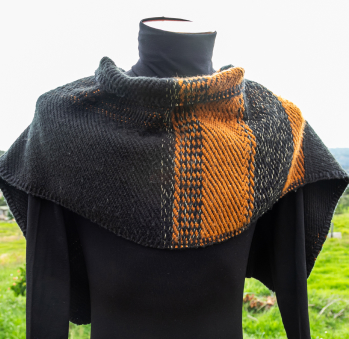







Artisans along the way
Artisans along the way
No puede copiar contenido de esta página

